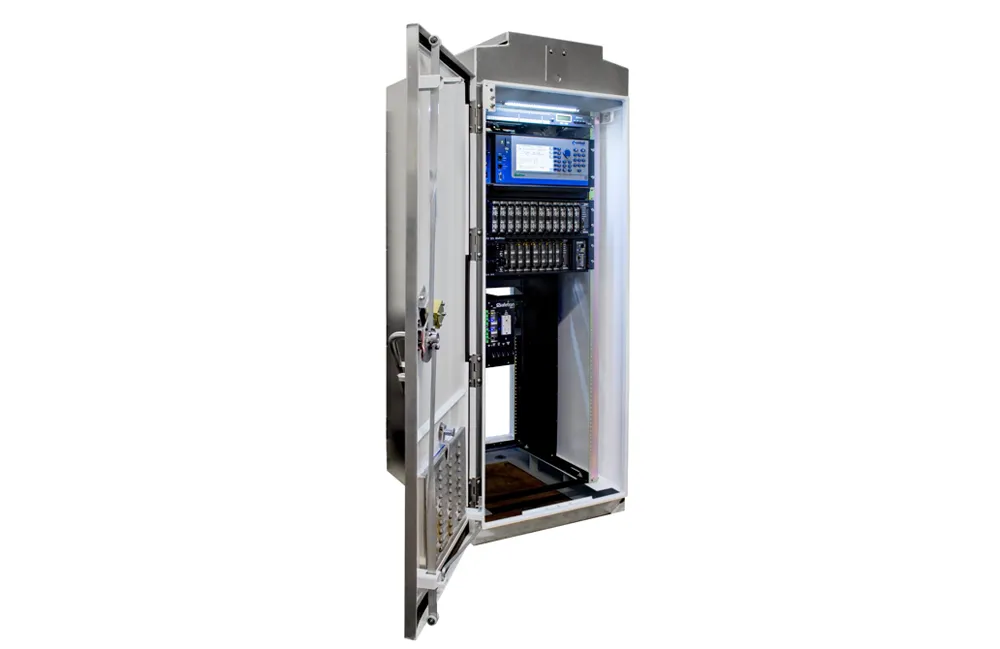With nearly 112 million vehicles now connected around the world, the global market for automotive cybersecurity is expected to grow exponentially – to US$759 million in 2023, according to a new report, Automotive Cyber-security and Connected Car, from IHS Automotive, part of business information provider IHS Markit. Connected cars are defined as those that have a connection to the internet, through telematics, an onboard modem or a paired device in the vehicle, such as a mobile phone or other device.
One
September 30, 2016
Read time: 4 mins
With nearly 112 million vehicles now connected around the world, the global market for automotive cybersecurity is expected to grow exponentially – to US$759 million in 2023, according to a new report, Automotive Cyber-security and Connected Car, from IHS Automotive, part of business information provider IHS Markit. Connected cars are defined as those that have a connection to the internet, through telematics, an onboard modem or a paired device in the vehicle, such as a mobile phone or other device.
One unfortunate result of connected car growth: vehicles are now more susceptible to cyber-attacks through the many wireless and wired connections. Hackers are getting savvier in perpetrating cyber-attacks – more easily and cost effectively-- on connected vehicles. OEMs and suppliers are taking these threats seriously, with increased interest in developing and implementing cyber-security solutions to address vulnerabilities and system design changes needed to accommodate them.
There are many software approaches to cyber-security in the car. According to IHS Markit research, the automotive cyber-security market will consist of two distinct segments. Some cyber-security software programs will be installed on to the many special purpose computers and data buses that control and regulate in vehicle functions such as the airbags and fuel intake. These special computers are known in the industry as electronic control units (ECUs).
The other segment will be cyber-security cloud services. These cloud services will track and manage whole fleets of vehicles through management service software that will track and assess irregularities, allowing carmakers to identify unauthorised attempts to attack or alter their vehicles. Most cars will have multiple cyber-security software programs to protect the key ECUs in the car, which could be as many as 50-60 (ECUs in today's vehicles) according to IHS Markit estimates.
In 2023, 25 per cent of the vehicles sold globally will be equipped with cybersecurity cloud services. The revenue of cyber-security cloud services will reach $389M globally in 2023, according to IHS Markit forecasts. Nearly 65 million vehicles are forecast to be subscribed to cyber-security services by 2023.
The royalty revenue for the cyber-security software programs will grow to US$370 million in 2023 from less than US$1 million in 2016. Due to multiple cyber-security software programs per vehicle that use cyber-security protection, nearly 150 million software programs will sold in 2023, according to IHS Markit forecasts.
According to Colin Bird, senior analyst, connected car consumer insights and software, apps and services (SAS) for IHS Markit and one of the report’s co-authors, cyber-security will be one of the toughest challenges that the auto industry will face in the next decade or two, especially as more vehicles with telematics and embedded modems make connected cars an attractive target to cyber criminals, terrorists and nation states.
The US and Western Europe are expected to be the leading markets for these technology developments, given the propensity for connected cars in both regions. According to IHS Markit forecasts, 2018 will be the year of the largest growth, and it will taper somewhat in the years following.948 General Motors, 1731 BMW and 1685 Mercedes currently lead the implementation of cyber-security solutions in their vehicles.
Today’s suppliers are offering solutions that will improve security to wireless interfaces within a vehicle, like telematics control units (TCUs), and are also designing solutions that isolate safety critical systems from non-critical systems through the use of automotive network firewalls. Longer term, integral electrical architectures within vehicles will be designed from the ground up with cyber-security in mind. These future systems will likely have the capability to isolate critical safety systems – such as propulsion, braking and steering – from security systems that may handle personal or financial data. These solutions will include auto-grade Ethernet and domain isolation.
IHS Markit estimates that, as a whole, up to 50 percent of a vehicle’s total development cost today is related to software or electronic components. Today’s mainstream vehicles are typically running 20-30 million lines of code on 50-60 electronic control units (ECUs) and more than 80 microprocessors within a vehicle, controlling everything from the infotainment system to critical software and powertrain functions. In addition, luxury vehicles may contain up to 50 million lines of code and up to 100 ECUs/MCUs.
One unfortunate result of connected car growth: vehicles are now more susceptible to cyber-attacks through the many wireless and wired connections. Hackers are getting savvier in perpetrating cyber-attacks – more easily and cost effectively-- on connected vehicles. OEMs and suppliers are taking these threats seriously, with increased interest in developing and implementing cyber-security solutions to address vulnerabilities and system design changes needed to accommodate them.
There are many software approaches to cyber-security in the car. According to IHS Markit research, the automotive cyber-security market will consist of two distinct segments. Some cyber-security software programs will be installed on to the many special purpose computers and data buses that control and regulate in vehicle functions such as the airbags and fuel intake. These special computers are known in the industry as electronic control units (ECUs).
The other segment will be cyber-security cloud services. These cloud services will track and manage whole fleets of vehicles through management service software that will track and assess irregularities, allowing carmakers to identify unauthorised attempts to attack or alter their vehicles. Most cars will have multiple cyber-security software programs to protect the key ECUs in the car, which could be as many as 50-60 (ECUs in today's vehicles) according to IHS Markit estimates.
In 2023, 25 per cent of the vehicles sold globally will be equipped with cybersecurity cloud services. The revenue of cyber-security cloud services will reach $389M globally in 2023, according to IHS Markit forecasts. Nearly 65 million vehicles are forecast to be subscribed to cyber-security services by 2023.
The royalty revenue for the cyber-security software programs will grow to US$370 million in 2023 from less than US$1 million in 2016. Due to multiple cyber-security software programs per vehicle that use cyber-security protection, nearly 150 million software programs will sold in 2023, according to IHS Markit forecasts.
According to Colin Bird, senior analyst, connected car consumer insights and software, apps and services (SAS) for IHS Markit and one of the report’s co-authors, cyber-security will be one of the toughest challenges that the auto industry will face in the next decade or two, especially as more vehicles with telematics and embedded modems make connected cars an attractive target to cyber criminals, terrorists and nation states.
The US and Western Europe are expected to be the leading markets for these technology developments, given the propensity for connected cars in both regions. According to IHS Markit forecasts, 2018 will be the year of the largest growth, and it will taper somewhat in the years following.
Today’s suppliers are offering solutions that will improve security to wireless interfaces within a vehicle, like telematics control units (TCUs), and are also designing solutions that isolate safety critical systems from non-critical systems through the use of automotive network firewalls. Longer term, integral electrical architectures within vehicles will be designed from the ground up with cyber-security in mind. These future systems will likely have the capability to isolate critical safety systems – such as propulsion, braking and steering – from security systems that may handle personal or financial data. These solutions will include auto-grade Ethernet and domain isolation.
IHS Markit estimates that, as a whole, up to 50 percent of a vehicle’s total development cost today is related to software or electronic components. Today’s mainstream vehicles are typically running 20-30 million lines of code on 50-60 electronic control units (ECUs) and more than 80 microprocessors within a vehicle, controlling everything from the infotainment system to critical software and powertrain functions. In addition, luxury vehicles may contain up to 50 million lines of code and up to 100 ECUs/MCUs.








